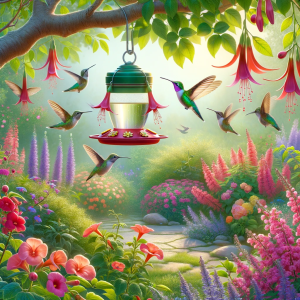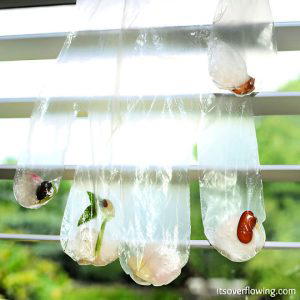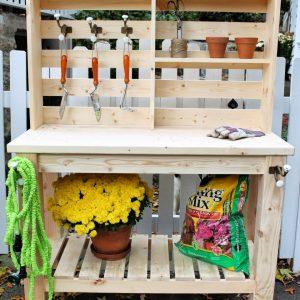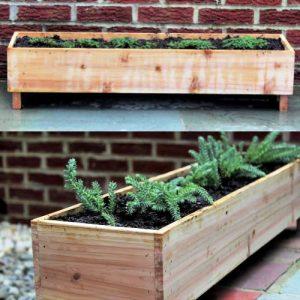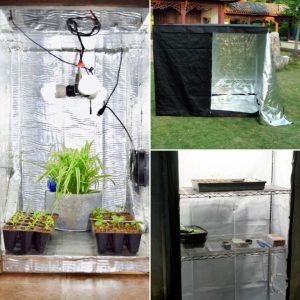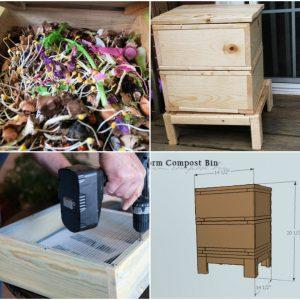When it comes to feeding squirrels, it’s important to provide them with a balanced and nutritious diet that supports their health and well-being. Squirrels are known to enjoy a variety of foods, with nuts being a popular choice. Offering nuts such as almonds, walnuts, hazelnuts, and pecans, preferably in their shells, can be a delightful treat for these furry creatures.
In addition to nuts, a feed mixture comprising items like sunflower seeds, beechnuts, and hornbeam seeds can also be suitable for squirrels. It’s essential to avoid feeding them salted nuts, as an excess of sodium is unnecessary and potentially harmful to their health.
By providing a wholesome and varied diet, you can contribute to the thriving ecosystem in your backyard while enjoying the delightful presence of these charming animals. Understanding what to feed squirrels is a simple yet meaningful way to support local wildlife and create an enriching environment for both humans and furry visitors alike.

Understanding Squirrel Diet and Nutrition
Squirrels, like many other animals, have specific dietary requirements to ensure their well-being. Understanding the natural diet of squirrels and their nutritional needs is crucial for anyone who wants to provide appropriate sustenance for these adorable creatures.
Natural Diet of Squirrels
Squirrels are primarily herbivores, meaning their diet mainly consists of plant-based materials. In their natural habitat, they forage for nuts, seeds, tree flowers, berries, fruits, and succulents. While they predominantly consume plant matter, squirrels are also known to occasionally include insects, bird eggs, and small vertebrates in their diet, making them technically omnivores. This diverse diet reflects their adaptability to various food sources in the wild.
To support the nutritional needs of wild squirrels, providing a mix of nuts, seeds, and fruits can closely replicate their natural foraging habits. Additionally, offering a source of protein, such as mealworms or eggshells, can help mimic the occasional animal matter they consume in the wild. Creating an environment rich in natural food sources can encourage natural foraging behaviors and provide essential nutrients.
Nutritional Needs of Squirrels
Squirrels require a balanced diet to meet their nutritional needs, consisting of protein, fat, carbohydrates, fiber, vitamins, and minerals. Calcium is particularly important for their bone health, and providing a source of this mineral is essential, especially for captive squirrels.
In addition to nuts and seeds, captive squirrels should be offered a specialized diet that closely matches their wild food sources. Squirrel blocks or rodent blocks are recommended to provide essential vitamins, minerals, and protein. Fresh foods such as low-carbohydrate vegetables, low-sugar fruits, and edible flowers should comprise a portion of their diet to ensure a well-rounded nutritional intake.
It’s important to be mindful of the foods that should be avoided, such as chocolate, which contains theobromine and is harmful to squirrels. Understanding their nutritional needs and dietary preferences is key to maintaining the health and vitality of these fascinating animals.
This section provides insights into the natural diet of squirrels and their nutritional requirements, offering guidance on replicating their wild diet and meeting their specific nutritional needs. By understanding what squirrels eat and need, individuals can better care for these delightful creatures.
Safe and Healthy Foods for Squirrels
Squirrels have a diverse diet in the wild, and replicating these food options when feeding them can promote their health and well-being. When choosing foods for squirrels, it’s important to focus on safe and healthy options to ensure they receive adequate nutrition. Here are some categories of safe and healthy foods for squirrels:
Nuts and Seeds
Squirrels are known for their love of nuts and seeds. Offering a variety of nuts such as almonds, walnuts, hazelnuts, and pecans can be a great source of healthy fats and protein for squirrels. It’s important to avoid salted nuts as they can be harmful to squirrels.
Fruits and Vegetables
Including a variety of fruits and vegetables in a squirrel’s diet can provide essential vitamins and minerals. Fruits like apples, bananas, and berries, along with vegetables such as carrots and leafy greens, can offer a well-rounded nutrition profile for squirrels.
Whole Grains
Whole grains like oats, barley, and whole wheat can be beneficial additions to a squirrel’s diet. These grains provide fiber and energy, contributing to a balanced diet for squirrels.
Protein Sources
In addition to nuts and seeds, squirrels can benefit from protein sources such as unseasoned cooked chicken or scrambled eggs. These protein-rich foods can support their muscle development and overall health.
Calcium-Rich Foods
Calcium is vital for maintaining strong bones and teeth in squirrels. Providing sources of calcium such as unseasoned, crushed eggshells or unflavored calcium blocks can help fulfill their calcium requirements.
Water
Maintaining proper hydration is essential for squirrels’ well-being. Access to clean, fresh water is crucial, especially when feeding them dry foods like nuts and seeds.
By ensuring a balanced diet that includes these safe and healthy food options, you can contribute to the overall health and vitality of squirrels. Keep in mind that offering a variety of foods is key to meeting their nutritional needs and supporting their natural foraging behaviors.
For further information, you can refer to credible sources like Birds and Blooms and Gardena to expand your knowledge on feeding squirrels in a safe and healthy manner.
Foods to Avoid Feeding Squirrels
Squirrels are delightful creatures that frequently visit our backyards, and while it’s tempting to treat them to human snacks, it’s essential to be mindful of their dietary needs. Certain foods that we consume can be harmful to squirrels and should be avoided to ensure their well-being.
High-Sugar and Processed Foods
Squirrels have a more delicate digestive system than humans, and offering them high-sugar and processed foods can lead to health issues. Sugary treats such as cookies, candies, or any artificially sweetened items can cause an imbalance in their blood sugar levels, potentially leading to obesity and dental problems. It’s crucial to remember that their natural diet consists of nuts, seeds, fruits, and vegetables, and deviating from this can have adverse effects on their health.
Salty Foods
Similar to humans, excessive salt consumption is detrimental to squirrels. Foods high in salt, such as salted nuts, pretzels, and chips, should not be given to squirrels. High salt intake can lead to dehydration and electrolyte imbalances, posing significant health risks for these small mammals. Opting for natural, unsalted nuts and seeds as occasional treats is a healthier choice for these furry visitors.
Toxic Foods for Squirrels
There are certain foods that are toxic to squirrels and should never be offered to them. Items such as chocolate, caffeine, and alcohol can be fatal to squirrels if ingested. Additionally, moldy or spoiled foods should be strictly avoided as they can cause digestive issues and toxic reactions. Being mindful of these toxic items is crucial in maintaining a safe environment for the squirrels that frequent our outdoor spaces.
By being selective and responsible in our choices, we can contribute to the well-being of the squirrels that grace our surroundings while enjoying their playful presence without inadvertently causing harm.
Feeding Tips and Best Practices
When it comes to feeding squirrels, there are several considerations to keep in mind to ensure their health and well-being. Here are some feeding tips and best practices to help you provide the best care for these furry visitors.
Feeder Options
Squirrels are known for their agility and intelligence, so providing them with feeder options that can accommodate their acrobatic nature is essential. Consider investing in squirrel-proof feeders to prevent them from consuming all the food at once or opt for open platforms that allow easy access for these nimble creatures. Additionally, offering a variety of feeding stations such as hanging feeders, ground platforms, or tree-mounted options can cater to different squirrel behaviors and preferences.
Frequency and Portion Control
Maintaining a balanced feeding schedule is crucial to prevent overfeeding or food scarcity for the squirrels. Aim to provide food in small, frequent portions to ensure they have a steady supply without excessive consumption. Monitoring the feeding frequency allows you to gauge the squirrels’ appetite patterns and adjust the portion sizes accordingly. It’s important to strike a balance to prevent wastage and promote healthy eating habits among the squirrel population in your area.
Seasonal Considerations
Adjusting the feeding practices based on seasonal changes is vital for supporting the squirrels’ nutritional needs throughout the year. During colder months, supplementing their diet with high-fat and high-protein foods such as walnuts, hazelnuts, beechnuts, and sunflower seeds can help them stock up on essential nutrients to withstand the winter conditions. In warmer seasons, incorporating fresh fruits and vegetables can provide hydration and additional nutrients for the squirrels. Adapting to seasonal variations ensures that the squirrels receive adequate nourishment based on their natural dietary requirements.
Remember, creating a hospitable feeding environment for squirrels can contribute to a harmonious coexistence and enhance your outdoor wildlife observations. By implementing these feeding tips and best practices, you can support the well-being of squirrels while enjoying their delightful presence in your surroundings.
FAQs About What to Feed Squirrels
If you’re eager to nourish the squirrels in your neighborhood, it’s essential to determine the most suitable food items for these lively creatures. To help you understand the nuances of feeding squirrels, here are answers to some frequently asked questions:
What Are the Best Foods to Feed Squirrels?
Squirrels boast a diverse palate, but their favorite treats typically include a variety of nuts. Walnuts, almonds, hazelnuts, and pecans are popular choices, especially when offered in their shells. These options provide both sustenance and entertainment for the squirrels, as cracking open the shells allows them to exhibit their natural foraging behaviors. Additionally, sunflower seeds are a delightful and nutritious alternative that squirrels thoroughly enjoy.
Should I Avoid Feeding Squirrels Salted Nuts?
Yes, it’s crucial to refrain from offering salted nuts to squirrels. Excessive sodium consumption can lead to health issues for these small mammals. Opt for unsalted or low-sodium nuts to keep the squirrels in prime condition while satisfying their hunger.
Can Squirrels Consume Fruits and Vegetables?
While nuts and seeds are the preferred choices, squirrels can also benefit from the occasional serving of fruits and vegetables. Apples, berries, and carrots are wholesome options that provide a delightful change in their diet. However, it’s vital to introduce fruits and veggies in moderation to maintain a balanced nutritional intake for the squirrels.
Is There Specific Squirrel Food Available in the Market?
Indeed, there are specialized squirrel food mixes designed to cater to the dietary requirements of these charismatic creatures. These blends are meticulously crafted to offer a well-rounded meal for squirrels, containing a combination of nuts, seeds, and other essential nutrients. When opting for commercially available squirrel food, ensure that it aligns with the nutritional needs of the squirrels in your area.
How Can I Offer Food to Squirrels in a Safe and Responsible Manner?
To foster a harmonious coexistence with squirrels, it’s crucial to offer their food in appropriate feeders or designated feeding areas. This approach minimizes the risk of attracting unwanted pests and ensures that the squirrels can enjoy their meals undisturbed. Additionally, maintaining a consistent feeding schedule can help regulate the squirrels’ dietary habits, preventing overeating and food hoarding.
As you embark on your journey of caring for the squirrels in your vicinity, these insights aim to provide guidance on selecting suitable food options and promoting responsible feeding practices. By understanding their nutritional needs and preferences, you can contribute to the well-being of these charming woodland inhabitants.
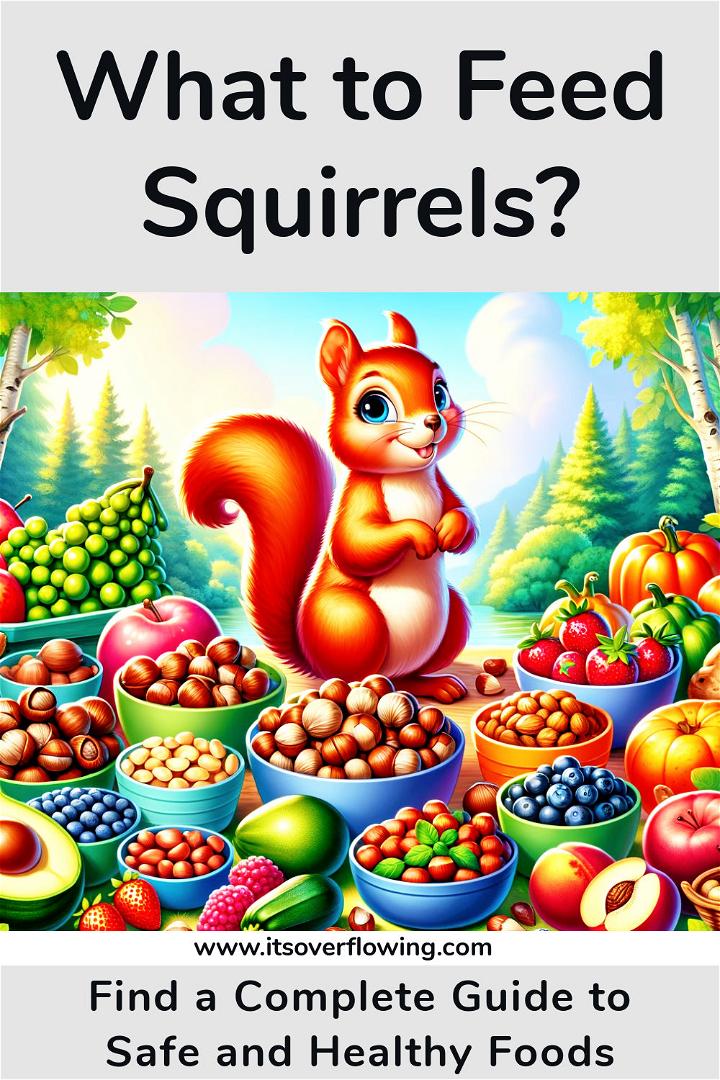
Conclusion
In conclusion, understanding what to feed squirrels is essential for their well-being and for maintaining a harmonious relationship with these fascinating creatures. By providing a suitable and varied diet, you can contribute to the thriving squirrel population in your area while also bringing moments of joy and entertainment to your backyard.
The Balanced Diet for Squirrels
Offering a balanced diet is crucial to ensure that squirrels receive the necessary nutrients for their overall health. Nuts such as almonds, walnuts, hazelnuts, and pecans are beloved favorites, especially when provided in their shells. Additionally, jumbo peanuts and specially made squirrel food are also excellent choices. Avoid salted nuts, as the high sodium content can be harmful to squirrels.
Supplementary Tips for Feeding Squirrels
In addition to nuts, squirrels can also enjoy a variety of other foods. Fresh fruits such as apples, pears, and berries can add diversity to their diet. Furthermore, providing water sources, such as shallow dishes or birdbaths, is essential for their hydration needs, especially during warmer months.
Considering Seasonal Variations
It’s important to remember that the dietary needs of squirrels may vary with the seasons. During winter, when natural food sources may be scarce, providing feed mixtures containing walnuts, hazelnuts, beechnuts, hornbeam seeds, and sunflower seeds can be beneficial for their survival.
By staying mindful of these dietary recommendations and making efforts to coexist peacefully with squirrels, you can create a nurturing environment that supports the well-being of these delightful creatures. Remember to always maintain a respectful distance and never force interactions, allowing squirrels to thrive in their natural habitat.
FAQs: Feeding Squirrels in Your Backyard
Learn what to feed squirrels in your backyard with this helpful FAQ guide. Discover tips and tricks for attracting these adorable creatures to your outdoor space.
What can I feed wild squirrels in my backyard?
You can feed wild squirrels a variety of nuts, seeds, fruits, and vegetables. Options include walnuts, almonds, pumpkin seeds, apples, carrots, and broccoli.
Are peanuts safe for squirrels?
Yes, peanuts are safe for squirrels, but they should be unsalted and given in moderation as part of a varied diet.
Can squirrels eat fruits and vegetables?
Absolutely, squirrels can enjoy fruits and vegetables. Offer them slices of apples, pears, bananas, berries, and leafy greens.
What types of nuts are best for squirrels?
The best nuts for squirrels are in-shell varieties like walnuts, almonds, hazelnuts, and acorns.
Is it okay to feed squirrels bread or other human foods?
Feeding squirrels bread or processed human foods is not recommended as these can be unhealthy for them.
How can I provide a balanced diet for squirrels?
Offer a mix of nuts, seeds, fruits, and vegetables to ensure a balanced diet for the squirrels.
What foods should I avoid giving to squirrels?
Avoid foods that are high in salt, sugar, and processed items. Chocolate, candy, and junk food are harmful to squirrels.
Is it necessary to provide water for squirrels?
Yes, it’s a good idea to provide a clean water source for squirrels, especially during dry periods.
Can squirrels eat birdseed or should they have separate food?
Squirrels can eat birdseed, but they benefit from a more varied diet including nuts and fresh produce.
How often should I feed the squirrels visiting my garden?
Feed squirrels sparingly to encourage natural foraging behavior, perhaps 2-3 times a week.
Are there any commercial foods specifically designed for squirrels?
There are commercial squirrel food mixes available, which can be a convenient option for feeding.
Can I feed squirrels food scraps from my kitchen?
It’s best to avoid feeding squirrels kitchen scraps, as many human foods are not suitable for them.
What is the best way to feed squirrels without attracting rodents?
Use squirrel feeders placed high off the ground to deter rodents and use foods that are less appealing to them.
Is it harmful to feed squirrels food with salt or sugar?
Yes, foods high in salt or sugar can be harmful to squirrels and should be avoided.
Can I make homemade squirrel food mixes?
Certainly! Mix unsalted nuts, seeds, and some chopped fruits and vegetables for a homemade squirrel feast.
Should I feed baby squirrels if I find them abandoned?
It is best to contact a wildlife rehabilitation center for guidance on feeding baby squirrels.
How can I create a squirrel-friendly habitat in my yard?
Plant native trees and shrubs, provide nesting boxes, and ensure there is a water source.
Are there any natural foods I can plant that squirrels will eat?
Squirrels enjoy eating from fruit trees, berry bushes, and nut-producing trees like oaks and hickories.
Can feeding squirrels lead to them becoming dependent on humans?
If squirrels are overfed, they may become reliant on human-provided food. It’s important to feed them moderately.
What are the signs of malnutrition in squirrels?
Malnutrition in squirrels can show as lethargy, poor coat quality, and unusual behavior. If you notice these signs, consider contacting a wildlife expert.


